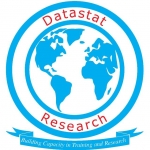|
|
ICT For Disaster Response in Nairobi and Mombasa, Kenya
USD 1,100 |
Venue: Nairobi
In an increasingly volatile world, disaster response has become more complex, demanding rapid, coordinated, and effective action. Information and Communication Technology (ICT) has become an essential tool in disaster management, offering innovative solutions for communication, coordination, data collection, and decision-making. The Training Course on ICT for Disaster Response is designed to equip emergency response teams, public sector officials, and humanitarian organizations with the knowledge and skills to utilize ICT tools in managing and responding to disasters efficiently. By integrating ICT solutions, participants will learn to enhance their disaster response strategies, improve communication with affected communities, and ensure timely interventions.
ICT tools such as Geographic Information Systems (GIS), mobile applications, and real-time data analysis platforms are revolutionizing how disaster management is carried out. The course provides a deep dive into the various ICT technologies and methodologies used in disaster response, focusing on practical applications such as early warning systems, disaster mapping, and logistics management. It will empower participants to harness the potential of these technologies to deliver effective and timely assistance in times of crisis.
Effective disaster response requires a comprehensive approach, combining rapid information gathering, analysis, and communication. ICT has the power to connect response teams, government agencies, and humanitarian actors in real-time, improving coordination and enabling swift decision-making. This course will focus on practical strategies for integrating ICT tools into disaster response operations, emphasizing the need for an agile, data-driven approach to crisis management.
Course Duration: 5 Days
Course Objectives
- Understand the role of ICT in disaster response and management.
- Learn how to integrate ICT tools in early warning systems and disaster preparedness.
- Gain proficiency in using Geographic Information Systems (GIS) for disaster mapping.
- Understand how to use mobile technology and apps for real-time disaster communication.
- Develop skills to collect, analyze, and interpret disaster-related data using ICT tools.
- Learn how to implement ICT solutions for effective logistics and resource management during disasters.
- Explore the use of ICT for disaster response coordination and collaboration.
- Understand the ethical and legal considerations of using ICT in disaster response.
- Examine case studies of ICT application in real-world disaster responses.
- Develop strategies for building ICT-enabled disaster response systems in organizations.
Organizational Benefits
- Enhanced disaster preparedness and response through the use of ICT solutions.
- Improved coordination and collaboration between agencies and organizations during a disaster.
- Increased efficiency in disaster response operations with real-time communication tools.
- Ability to leverage GIS and other mapping tools for accurate disaster impact assessments.
- Streamlined logistics management and resource allocation during disaster relief operations.
- Improved data collection and analysis, leading to better decision-making in crisis situations.
- Reduced response times by utilizing mobile technology for faster communication and updates.
- Strengthened capacity to handle large-scale disaster data and deliver timely reports.
- Enhanced collaboration with communities through ICT tools that improve citizen engagement.
- Greater resilience in disaster response capabilities by building ICT-integrated systems.
Target Participants
- Disaster management professionals and emergency response teams.
- Public sector officials involved in disaster preparedness and response.
- Humanitarian organizations and NGOs engaged in disaster relief efforts.
- IT professionals working in disaster response systems and logistics.
- Community leaders and local government officials involved in disaster management.
- Health professionals and environmental agencies managing disaster response.
- Students and professionals interested in ICT applications for disaster management.
Course Outline
Module 1: Introduction to ICT in Disaster Response
- The role of ICT in modern disaster response and management.
- Overview of ICT tools commonly used in disaster scenarios.
- Key principles of disaster response and the need for integrated ICT solutions.
- Challenges and opportunities in using ICT for disaster management.
- Case study: Successful ICT application in the 2010 Haiti earthquake response.
Module 2: ICT Tools for Early Warning and Disaster Preparedness
- Introduction to early warning systems (EWS) and ICT's role in disaster prediction.
- Mobile applications for disaster alerts and warnings.
- ICT solutions for monitoring environmental hazards (e.g., weather, floods, fires).
- Using data analytics to predict and prepare for potential disasters.
- Case study: ICT-driven early warning systems in Southeast Asia.
Module 3: Geographic Information Systems (GIS) for Disaster Mapping
- Understanding GIS and its applications in disaster response.
- Collecting and processing spatial data for disaster mapping.
- Using GIS for damage assessment and resource allocation.
- Integrating GIS with real-time data for effective disaster management.
- Case study: GIS application in the 2015 Nepal earthquake response.
Module 4: Mobile Technology for Real-Time Disaster Communication
- Role of mobile technology in real-time communication during crises.
- Mobile apps for coordination between responders and affected communities.
- Leveraging SMS and social media for disaster communication.
- Collecting real-time data from affected populations via mobile platforms.
- Case study: Mobile communication systems in the 2014 Ebola outbreak.
Module 5: ICT for Disaster Logistics and Resource Management
- Using ICT for resource tracking and logistics management during disasters.
- Managing supply chains and distributing aid through digital platforms.
- Mobile tools for coordinating field teams and distributing resources.
- Using ICT tools to monitor and report on disaster relief efforts.
- Case study: ICT-based logistics management in Typhoon Haiyan response.
Module 6: Coordinating Disaster Response with ICT
- Building collaborative networks using ICT for disaster response.
- Real-time coordination among local, national, and international response teams.
- Data sharing platforms for enhanced situational awareness and decision-making.
- ICT for managing crisis communication and media relations during disasters.
- Case study: Collaborative disaster response using ICT in the 2004 Indian Ocean tsunami.
Training Methodology
This course employs a participatory and hands-on approach to ensure practical learning, including:
- Interactive lectures and presentations.
- Group discussions and brainstorming sessions.
- Hands-on exercises using real-world datasets.
- Role-playing and scenario-based simulations.
- Analysis of case studies to bridge theory and practice.
- Peer-to-peer learning and networking.
- Expert-led Q&A sessions.
- Continuous feedback and personalized guidance.
| Nairobi | Jan 26 - 31 Jan, 2025 |
| USD 1,100.00 | |
Sammy Gathuru +254724527104
Related Courses
 2025 Training Course on HIV/AIDS Management - CALL FOR APPLICATIONS
2025 Training Course on HIV/AIDS Management - CALL FOR APPLICATIONS
5 days, 10 - 14 Feb, 2025
Datastat Research Center
 2025 Alcohol and Drug Abuse Training - CALL FOR APPLICATIONS
2025 Alcohol and Drug Abuse Training - CALL FOR APPLICATIONS
5 days, 10 - 14 Feb, 2025
Datastat Research Center





